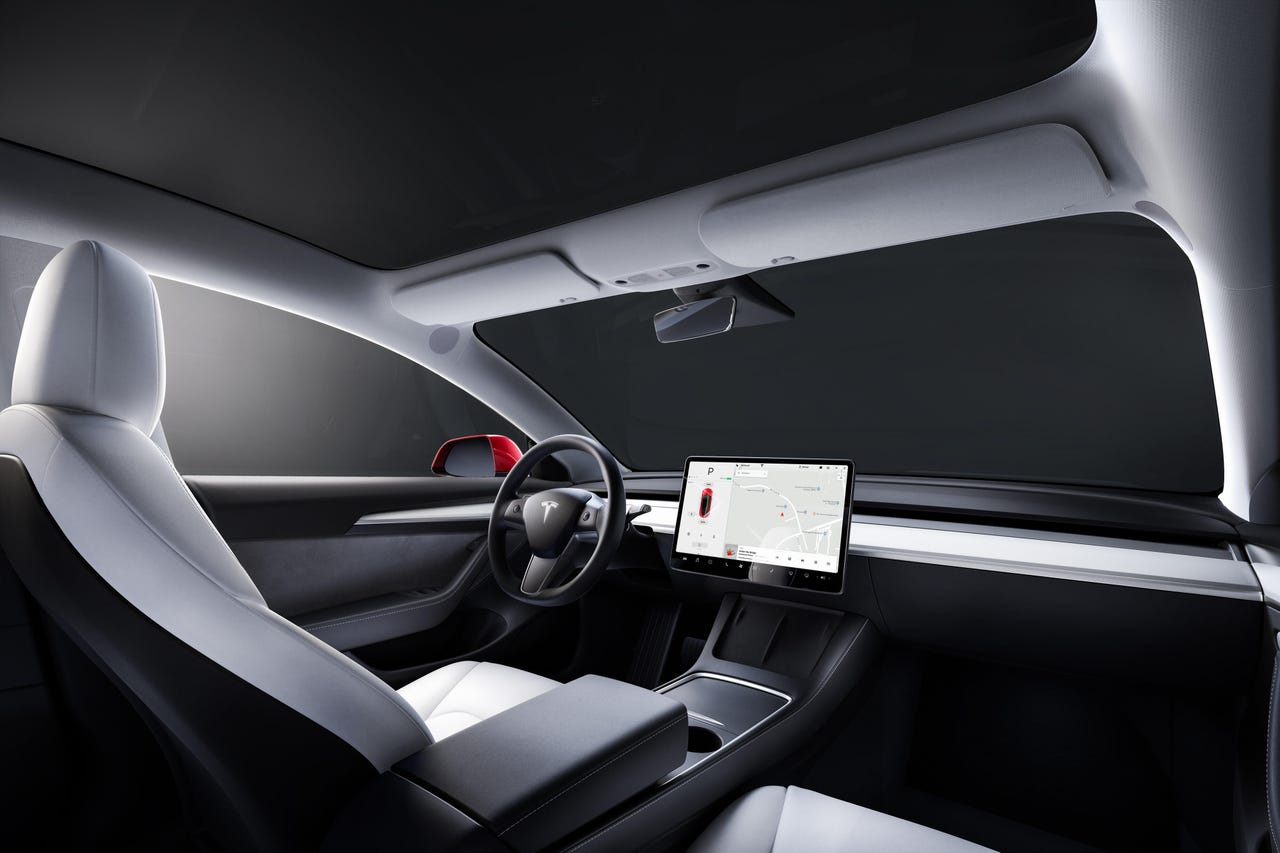































 Tesla
Tesla Tesla has closed a deal with Emergency Safety Solutions (ESS) to implement ESS' Hazard Enhanced Location Protocol (HELP) technology in its cars. The tech is designed to help prevent Tesla vehicles from crashing into vehicles that are pulled over on the side of the road.
Tesla will deploy HELP on a wide range of Tesla vehicles via over-the-air software updates. The implementation will initially be limited to vehicles in North America. Since HELP is software-based, it will use the existing vehicle hardware and lighting systems present in Tesla vehicles to improve vehicle safety.
This agreement will make Tesla the first automaker to implement HELP technology.
"Tesla is a leader in bringing first-time innovation to passenger vehicles and is leading the way by implementing HELP technology on potentially millions of Tesla vehicles worldwide," Tom Metzger, CEO of ESS, said in a release.
Also:The 5 best affordable EVs you can buy, plus how the tax credit works
HELP aims to save lives by eliminating preventable crashes into cars that are stopped or disabled near active roadways, an issue that affects more than 72,000 people yearly in the US, with 15,000 injured or killed, according to the ESS website.
To reduce the likelihood of accidents like this happening, HELP first enables your hazard lights to blink at higher emergency-based flash rates, at a 4.5Hz rate compared with the current hazard flash rate of 1Hz to 2Hz.
In addition, HELP sends out alerts to oncoming drivers through audio and digital signals that show up on their navigation screen, so that cars have more time to react and avoid collisions.
The system, which includes the lighting and digital alerts, can be implemented manually or automatically. If there is a collision, the system will automatically activate, but drivers also have the option to manually activate the system when in park.
Last week, the company made another change regarding its vehicle safety features as well. Tesla announced it was removing ultrasonic sensors, sensors typically used to support anti-collision safety systems in its cars, to lean in to Tesla Vision instead.
 Tags quentes :
Inovação
Transporte
Tags quentes :
Inovação
Transporte